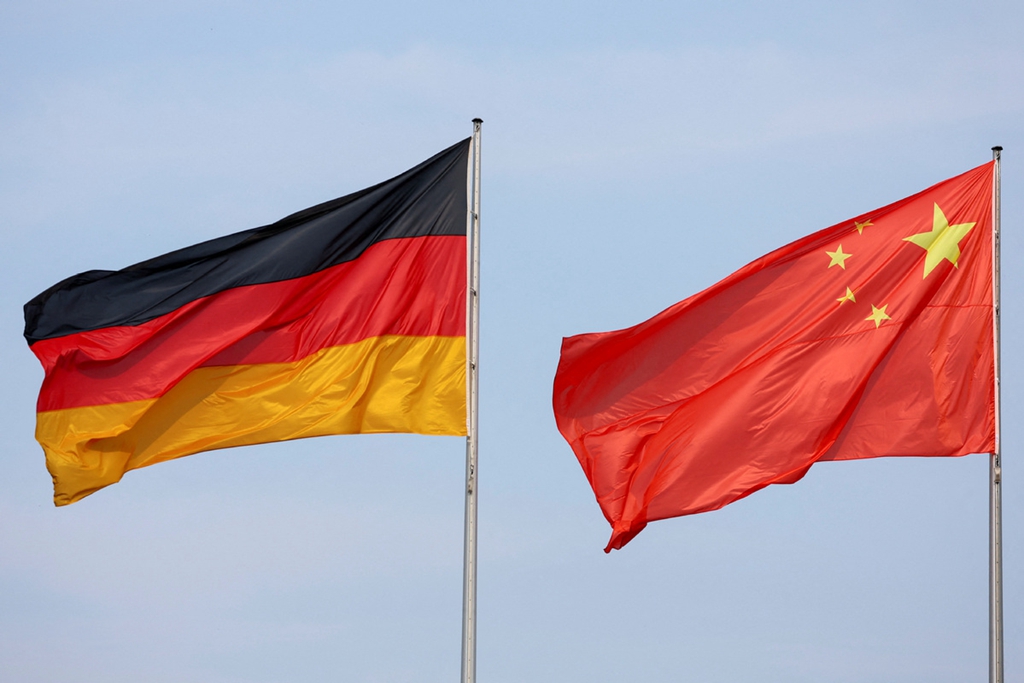German warships sailing through the Taiwan Strait and visiting the Philippines have sent signals about Berlin changing its attitude toward Beijing which appears confrontational in nature.
The German action comes at the cost of deteriorating its relationship with Beijing as it openly confronted the Chinese hegemony in the Indo-Pacific region.
Germany began slowly moving away from China after Chancellor Olaf Scholz took over.
The apparent reasons are security and defence besides trade. Beijing took a strong exception to the German warships passing through the Taiwan Strait.
However, Berlin went ahead with the risk at the cost of deteriorating its relations with China.
The message was clear – Germany seeks to defend freedom of navigation and independence of Taiwan, said Daniel Kochis, a senior fellow at Hudson Institute’s Centre on Europe and Eurasia.
Following the footsteps of the US and a few European countries, Germany has decided not to use 5G components manufactured by Chinese companies Huawei and ZTE to prevent “dangers from sabotage and espionage.”
The German warships- the Baden-Württemberg and Frankfurt am Main- had recently sailed through the Taiwan Strait, which had irked Beijing.
Chinese Foreign Ministry spokesperson Mao Ning found it “provocative” and called the waters of the Taiwan Strait China’s “internal” waters.
Germany however rejected it. German Defence Minister Boris Pistorius said “International waters are international waters. It’s the shortest and, given the weather conditions, the safest route. So we are passing through.”
German warships visited the Philippines after the long gap of 22 years.
While no naval exercise was carried out, the focus appears to be aimed at Chinese expansionism in the Indo-Pacific.
German Ambassador to the Philippines Andreas Pfaffernoschke said the voyage was to protect the international rules-based order even as he expressed concerns over the aggression shown by China over control of the Spratley Islands.
“Such dangerous clashes are not only a threat to security and stability of the region but are putting human lives at risk,” he said.
Germany had deployed its ships in the South China Sea in 2021 but the recent action challenged China’s growing assertiveness and even ‘One China’ policy, said Stephen Flanagan, who served as senior director for defense policy and strategy at the National Security Council.
Warships by Germany and other countries passing through the Taiwan Strait blew up the Chinese Communist Party’s information campaign that Taiwan is part of China.
Germany has made it clear that China enjoys no special rights in the South China Sea and it must stop its hegemonic attitude.
In recent years, Germany stayed away from controversies surrounding China. However, cracks have begun to appear in the ties of these two countries lately.
A few months ago, an investigation by German authorities found the involvement of Chinese state actors in the cyberattack on the German Federal Agency for Cartography and Geodesy.
“This serious cyberattack on a federal agency shows how big the danger is from Chinese cyberattacks and spying,” said Interior Minister Nancy Faeser.
However, its tone appears to be changing now. A few days ago, German Economy Minister Robert Habeck welcomed the anti-subsidy investigation by the EU into the unfair financial support by the Beijing government to the local EV manufacturers.
While China denied charges, Faeser said “We call on China to refrain from, and to prevent, such cyberattacks.”
Germany summoned the Chinese ambassador to lodge its protest.
Following the footsteps of the US and a few European countries, Germany has decided not to use 5G components manufactured by Chinese companies Huawei and ZTE to prevent “dangers from sabotage and espionage.”
A few months ago, three people were arrested in Germany on the charges of spying for China.
Notably, those three accused were associated with Chinese plans of maritime expansion.
Germany even has tried to reduce the quantum of trade with China as its exports saw a dip compared to that with neighbour Poland.
Now the US has replaced China as the biggest trading partner.
“The fact that the US has become Germany’s largest trading partner indeed illustrates changing trade patterns and the gradual decoupling from China,” said Carsten Brzeski, global head of macro research at ING Research.
Germany has already asked its companies to “derisk” from China.
Initially, Germany had distanced itself from the European Union’s tariff on Chinese electric cars to prevent dumping.
However, its tone appears to be changing now. A few days ago, German Economy Minister Robert Habeck welcomed the anti-subsidy investigation by the EU into the unfair financial support by the Beijing government to the local EV manufacturers.
“This is about unfair competition, it’s not about keeping efficient cheap cars out of the European market,” he said.









Comment